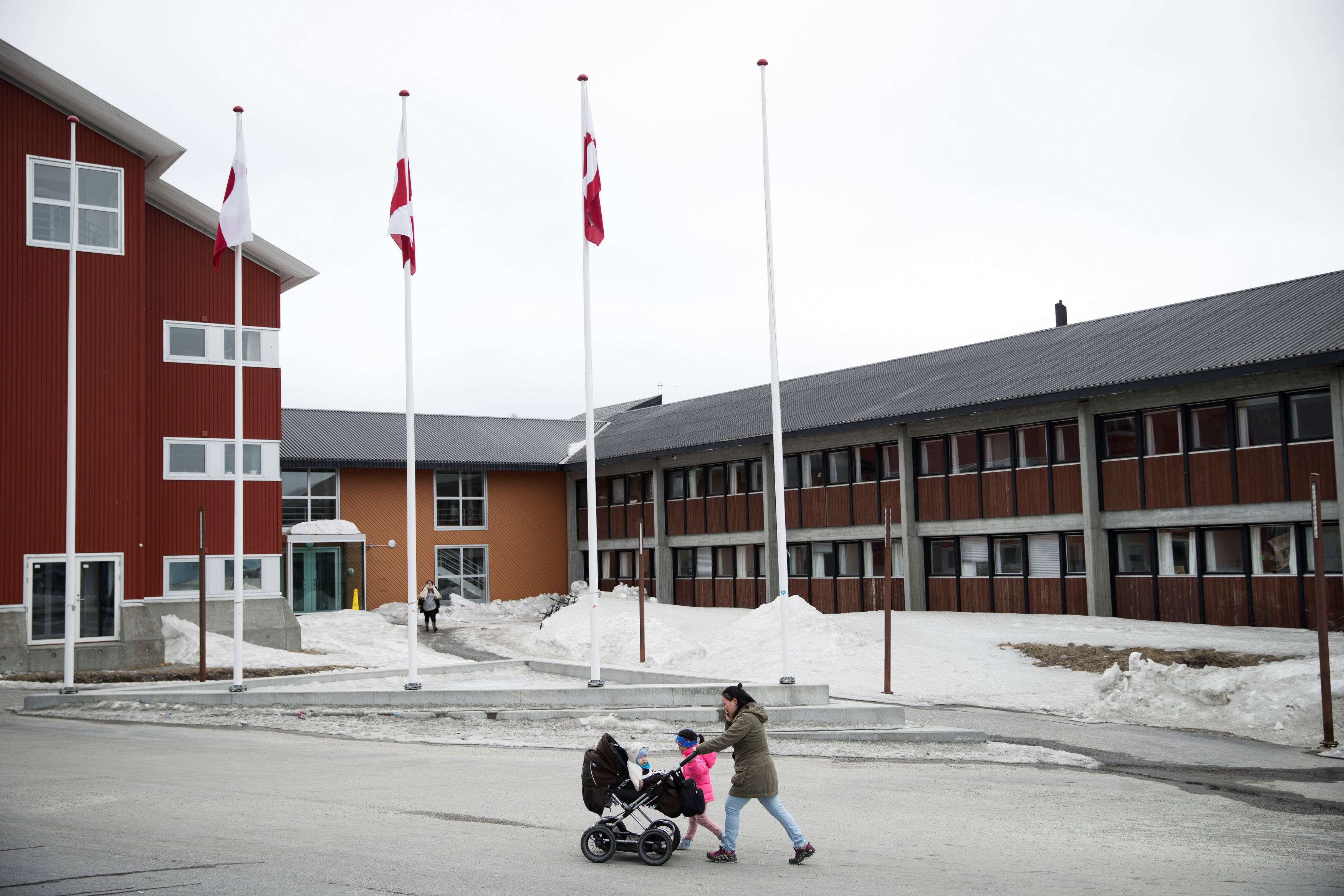Why Greenlanders are taking Trump’s interest very seriously
As U.S. interest in the Arctic grows, Greenland’s hard-won self-determination is at stake.

Annex Greenland?
We can ask the question, when Russia can annex Crimea, why would the United States hesitate with Greenland? I think that a U.S. attempt to buy a nation or to annex Greenland, no matter how absurd it is, is not taken seriously enough. Last time we said no to this shocking idea was in 1946 under President Truman. But we must remember that U.S. territory has been build by annexation. For us in Greenland this is the continuation of the Cold War policies, as we know it. Many think that if Russia can annex Crimea the U.S. then has a reason. But wait. We are living in the 21st century? Yes, but this nevertheless a reality of today.
[Why President Trump’s idea to buy Greenland is not a joke in Denmark and Greenland]
On the surface, Greenland’s sovereignty seems secure. As part of the Danish Kingdom, it is associated with the EU, and a NATO alliance member and it has a tri-lateral agreement with Denmark and the U.S. about the defense of Greenland that was signed in 2004 (to include Greenland as an amendment to the 1951 defense agreement). That’s when we enjoyed close and friendly cooperation with a Republican Secretary of State. Greenland, the U.S. and the rest of the Arctic nations — including Indigenous representatives — have had a close cooperation since 1996 through the Arctic Council, creating valuable scientific cooperation.
Greenland is constitutionally part of the Danish Kingdom, but since the passage of the Act On Self Government in 2009, Greenland is essentially governing itself without asking for permission first. Denmark presented a letter on Feb. 23, 2010 to the UN General Assembly on Implementation of the Declaration on the Granting of Independence to Colonial Countries and Peoples. In the letter, Denmark states that the people of Greenland are people with the right to self-determination under international law and the act gives the Greenlandic people right to gain independence in the future. The feelings about Greenland’s future independence is murky and many observers say that an indigenous Inuit nation cannot become a sovereign nation in an area like in the Arctic with such geopolitical importance. But Greenland is not alone; together with the Faroe Islands we have the most respectable partnership with Denmark within the Kingdom, which has defended us since before the existence of the U.S.
However, now, we fear the Cold War is returning. We fear this because we are only 57,000 souls in Greenland, with no military forces, but are housing (for free) an U.S. Air Force Base in Thule (which cost the freedom of the Inughuit of nearby Uummannaq village, who were forced to leave their village in 1953, when the base was being built.) Greenland is also quite generous in giving the U.S. Air Force the right to use the civil airport of Kangerlussuaq in West Greenland. For Greenland there are no longer economic incentives to have foreign bases, since the rise of the “America First” attitude, and the subsequent loss of a local contract to supply the base.
In spite of all this, Greenland has done its part in the NATO and Greenlanders have participated in Danish missions in Afghanistan and elsewhere alongside American troops. So, when the closest ally cannot even say thank you for their sacrifice, then it’s not a friend or even close to being a reliable ally.
The U.S. blames the Chinese or Russia for the geopolitical situation. But should we be more fearful of 1.3 billion people under autocratic regime or a country (and its military might) of only 330 million run by an indecent administration?
The world stability was intact until recently but the U.S. is no longer what it was.
Yes, this is deadly serious. And yes, we are afraid — of all three!
Aqqaluk Lynge, a former president of the Inuit Circumpolar Council, lives in Nuuk, Greenland.
The views expressed here are the writers’ and are not necessarily endorsed by ArcticToday, which welcomes a broad range of viewpoints. To submit a piece for consideration, email commentary (at) arctictoday.com.